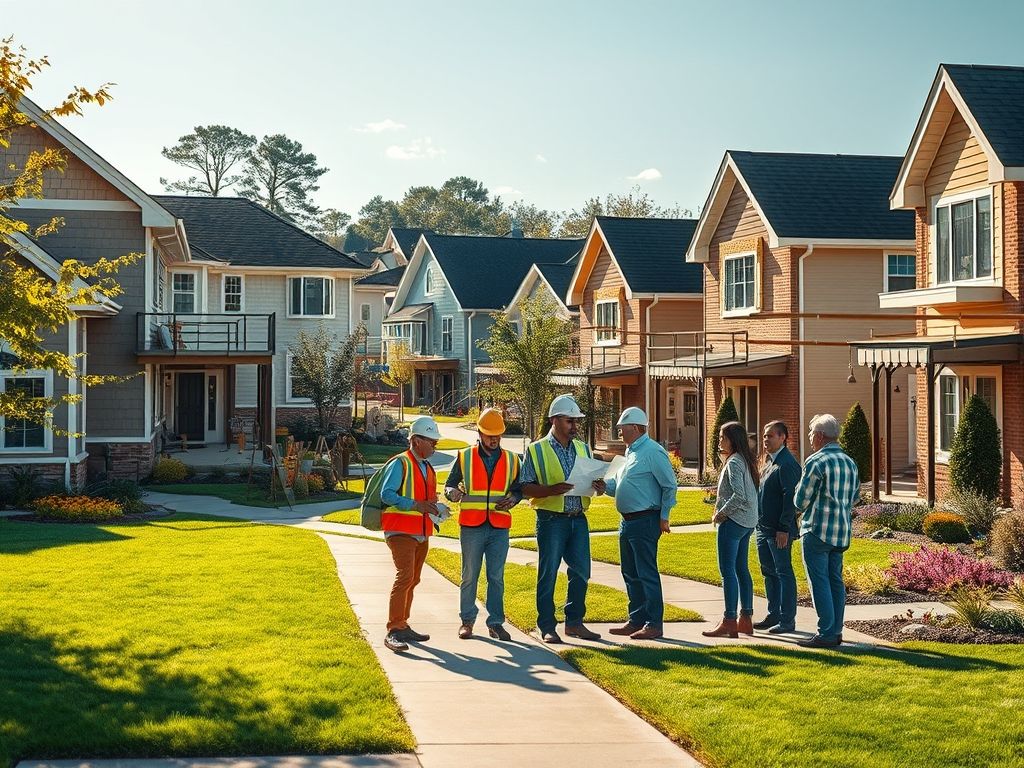What is Building Community?
Building community refers to the process of creating connections and fostering relationships among individuals within a specific locality, particularly in the context of construction and home renovation services in Massachusetts. This concept extends beyond merely constructing physical structures; it emphasizes the importance of social ties, collaboration, and shared goals among homeowners, real-estate investors, and professional contractors.
The Importance of Building Community in Construction
In the construction and home renovation sector, building community is crucial for several reasons:
- Enhanced Collaboration: Stronger relationships lead to better teamwork among contractors and clients, resulting in improved project outcomes.
- Local Resources: Communities can share valuable local resources, such as suppliers and subcontractors, which can reduce costs and increase efficiency.
- Trust and Transparency: When a community is built on trust, it fosters open communication, leading to fewer misunderstandings and delays in projects.
- Increased Value: A community that works together often sees an increase in property values, as neighborhoods become more desirable places to live.
Key Aspects of Building Community in Massachusetts
To understand what building community entails, it is essential to recognize its key components, especially within the context of Massachusetts:
- Engagement: Participation in local events and forums enhances visibility and connectivity.
- Communication: Open lines of communication between stakeholders create a transparent environment.
- Shared Goals: Aligning objectives between homeowners and contractors ensures that all parties work towards common outcomes.
- Support Systems: Establishing local support systems can help address challenges in construction projects effectively.
Real-World Examples of Building Community
To illustrate the concept of building community, here are some practical examples:
- Neighborhood Improvement Projects: Local groups can collaborate on projects such as park renovations, which enhance the community’s aesthetic and usability.
- Workshops and Seminars: Hosting informational workshops on home renovation can serve as a platform for homeowners and contractors to share knowledge and resources.
- Networking Events: Organizing events where local contractors showcase their work can foster partnerships and lead to future collaborations.
- Online Platforms: Utilizing social media and local forums can help build virtual communities where ideas and services are exchanged effectively.
How to Build Community in Your Local Area
Here are actionable steps homeowners and contractors in Massachusetts can take to build community:
- Participate in Local Events: Attend town hall meetings and local festivals to meet neighbors and other professionals.
- Join Professional Associations: Becoming a member of local construction associations can provide networking opportunities and resources.
- Collaborate on Projects: Work with local government or non-profits on community development initiatives.
- Utilize Local Media: Share success stories and upcoming projects in local newspapers to raise awareness and encourage community involvement.
Applications of Building Community in Daily Life
Understanding how to implement community-building practices in daily life can significantly enhance your experience in the construction industry:
- Building Relationships: Foster strong relationships with local suppliers and contractors to ensure smoother project execution.
- Sharing Resources: Create a network of trusted professionals to share tools and equipment, reducing costs.
- Community Feedback: Regularly seek feedback from clients and neighbors to refine services and address community needs effectively.
- Mentorship: Offer mentorship to new contractors, helping them integrate into the local community.
Related Concepts
Several concepts are interconnected with building community, enhancing the understanding of its importance:
- Community Engagement: The process of involving community members in decision-making.
- Collaboration: Working together towards a common goal is essential in construction.
- Trust-Building: Establishing trust is foundational for effective community building.
- Local Economic Development: Strengthening local economies through shared resources and networks.
Conclusion
In summary, understanding what building community is essential for homeowners, real-estate investors, and professional contractors in Massachusetts. By fostering relationships and collaboration, the construction and renovation industries can thrive, creating better outcomes for all stakeholders involved. Embracing this concept is not just beneficial; it is vital for sustainable development and community well-being. Take the time today to engage with your community, and watch how it transforms your projects and relationships.
Reflect on how you can implement these community-building strategies in your day-to-day interactions, and consider how they can enhance your professional and personal life.







